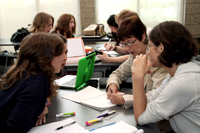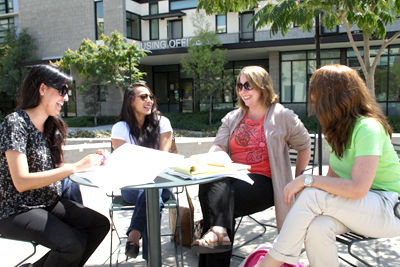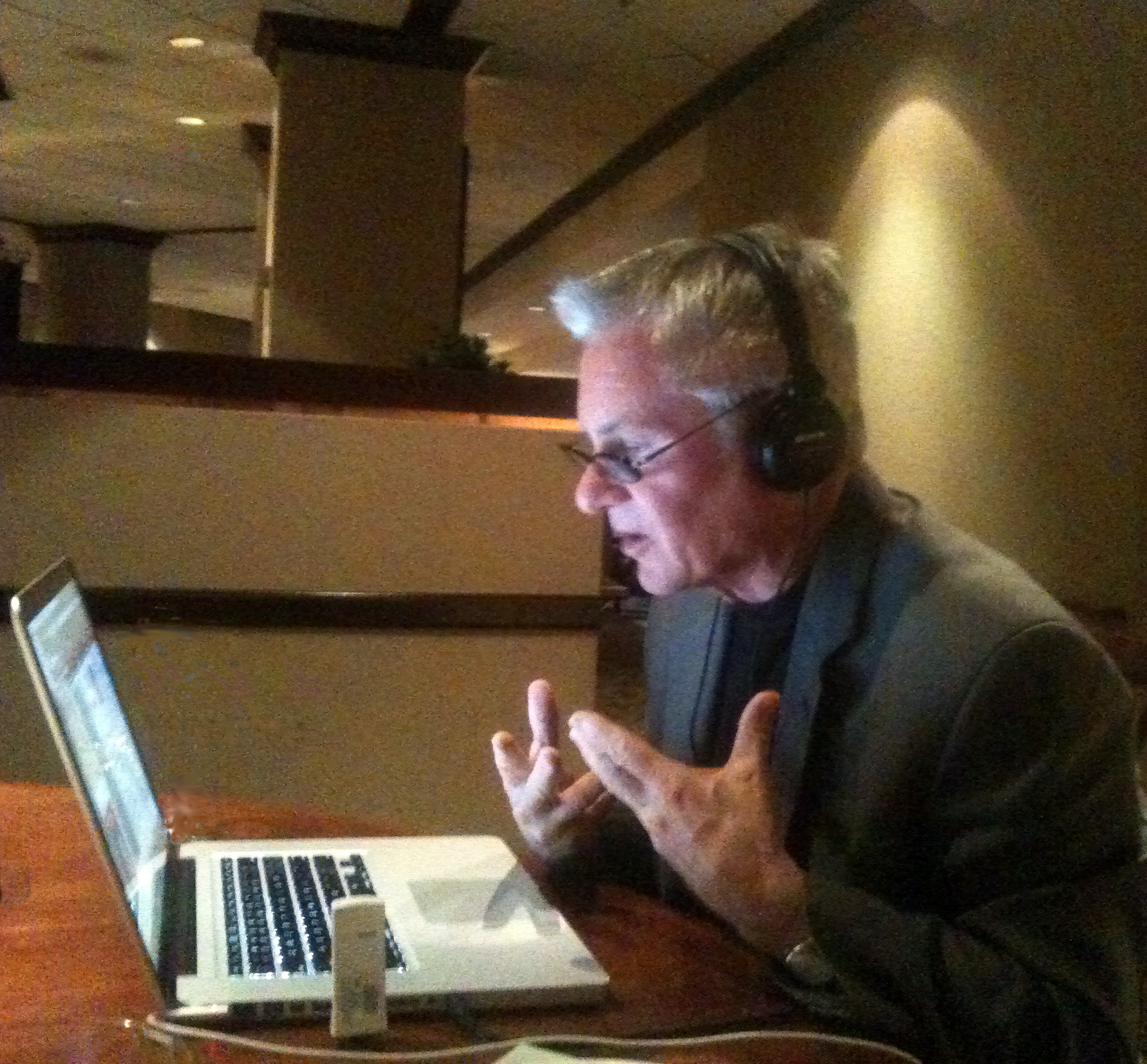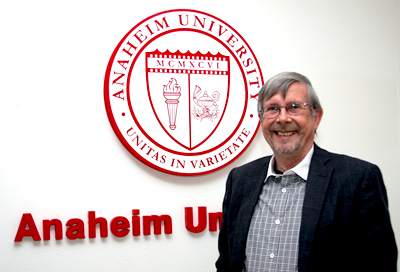 TESOL Residential Session
TESOL Residential Session
Doctor of Education in TESOL (Ed.D.) Course Schedule
Real-time online classes are 90 minutes; the first hour is led by the professor and the final half-hour is for student-led discussion. All times are California/Pacific Time. Please note the schedule is subject to change.
Ed.D. TESOL REQUIRED 4-DAY RESIDENTIAL SESSIONS
Ed.D. TESOL students are required to attend two 4-day residential sessions during their program. Each year, an annual residential session will be held in California or other locations around the world on occasion. Details regarding the 2025 residential session are forthcoming.
| Term | Course | Real-time Online Class time (Fridays CA time) |
| Term 1: January 2 - March 3, 2025 |
EDU 700 Instructed Second Language Acquisition EDU 702 Individual Learner Differences in Language Learning and Teaching EDU 732 Dissertation Proposal Writing EDU 733 Dissertation |
TBA |
| Term 2: March 10 - May 12, 2025 |
EDU 721 Language Teacher Education EDU 711 Technology and Language Education EDU 704 Discourse Analysis for Language Teachers EDU 733 Dissertation |
TBA |
| Term 3: May 19 - July 21, 2025 |
EDU 720 ELT Leadership and Management EDU 712 ELT Materials Development EDU 731 Quantitative Research Methods EDU 733 Dissertation |
TBA |
| Term 4: July 28 - September 28, 2025 |
EDU 732 Dissertation Proposal Writing EDU 710 Curriculum Design EDU 733 Dissertation |
TBA |
| Term 5: October 6 - December 7, 2025 |
EDU 701 Interlanguage Pragmatics EDU 733 Dissertation |
TBA |
All online class times are California/Pacific Time. Please note that California observes Daylight Savings Time each year from the second Sunday in March to the first Sunday in November.
Comprehensive Exams are scheduled according to student need. Students who fail the Comprehensive Exam will be enrolled in a Study Term and assigned a professor to mentor them through the process of studying and synthesizing their coursework. They will pay the standard tuition and records fee for this support and to re-sit the exam.
PLEASE NOTE: Failure to take a required course when one is offered may prevent a student from completing his/her program in the allotted time, as all course work must be completed before a student will be allowed to advance to the dissertation phase of the program. Schedules are subject to change.
Doctor of Education in TESOL (Ed.D) Program Fees
Affordable Pay-As-You-Learn System: Pay for only one course at a time.
| Application and Registration Fees | ||
|---|---|---|
| Application Fee (Non-refundable after 7 days) |
$ 75 | |
| Registration Fee (Non-refundable after 7 days) |
$100 | |
| STRF Fee* (non-refundable, CA residents only) | $0 | |
| Per Course Fees | ||
| Tuition Fee ($500 per credit x four credits) |
$2,000 / course taken | |
| Records Fee | $ 200 / term | |
| Per Course Fee Total: | $2,200 | |
| Residential Session Fees | ||
| Residential Fee per session attended $ 1,500 / session (Room & Board not included)** | $3,000 | |
| Estimated Accommodations Fees | $1,600 | |
| Additional Fees | ||
| Estimated Textbook Fees | $ 700 | |
| Research reserved fund | $2,000 | |
| Transfer Credit Fee | $ 75 / course (optional) | |
| Original Transcript | No cost | |
| Each Additional Transcript Copy | $ 25 | |
| End of Program Fees | ||
| Diploma | No cost | |
| Replacement Diploma | $ 200 (optional) | |
| Replacement Cover | $ 100 (optional) | |
| Official Completion Letter | $ 35 (optional) | |
| Degree Program Total | $49,275 ++ | |
**We offer a discounted on-campus housing option for the residential session -- the cost varies depending on location. You may opt for alternate accommodations. The cost of travel will vary, depending on your distance from the residential session and your mode of transportation. Anaheim University does not provide visa services. For Doctor of Education (Ed.D) in TESOL students attending the four-day residential sessions, it is the students’ responsibility to ensure that they have taken care of proper visa procedures, if required.
++Assumes completion in 19 terms.
 TESOL Residential Session in California
TESOL Residential Session in California
Note: A student can plan on approximately $700 in textbook purchases during the program. A textbook list may be found in the online resources of the student website. Real-time classes do not require specific materials beyond what is already supplied for the course.
Note: Anaheim University makes certain provisions in order to provide access to library resources and library services for all students enrolled directly through Anaheim University. However, students enrolled in Anaheim University’s online graduate degree programs are required to have an additional reserve fund to be used for the purchase of journals and research - materials that will aid them in their studies by providing information specific to their unique areas of interest and research - and to provide access to software and other resources that may help them in the completion of their studies. The research reserve fund is $1,500 for master's degree students and $2,000 for doctoral students to be used over the duration of their program. Students are not required to spend the entire research fund - only that amount necessary in order to carry out their research.
The above itemizes all of the fees and charges for which the student is responsible. You may find the refund policy in the section on Policies & Procedures.
*Student Tuition Recovery Fund (STRF): The Student Tuition Recovery Fund (STRF) is administered by the California BPPE and applies only to California residents. The STRF fee is currently zero ($0) per one thousand dollars ($1,000) of institutional charges The State of California established the Student Tuition Recovery Fund (STRF) to relieve or mitigate economic loss suffered by a student in an educational program at a qualifying institution, who is or was a California resident while enrolled or was enrolled in a residency program, if the student enrolled in the institution, prepaid tuition, and suffered an economic loss. Unless relieved of the obligation to do so, you must pay the state-imposed assessment for the STRF, or it must be paid on your behalf, if you are a student in an educational program, who is a California resident, or are enrolled in a residency program, and prepay all or part of your tuition. You are not eligible for protection from the STRF and you are not required to pay the STRF assessment, if you are not a California resident, or are not enrolled in a residency program.
Each course is US$2,000.00 for tuition excluding books, materials and other costs as follows. Students must pay the required tuition fee prior to commencing their next course. The student is not required to pay this tuition fee until the student wishes to register for his or her next course.
Students interested in inquiring about non-interest-bearing monthly payment plan options should e-mail This email address is being protected from spambots. You need JavaScript enabled to view it.
Tuition may be paid on a course-by-course basis. Students may make payment by check, credit card (Visa, MasterCard, American Express or Discover), money order or bank transfer (the student is responsible for any transactions fees imposed by the institution).
“Studying online fit my schedule perfectly. I enjoyed the online experience at Anaheim University because it allowed students to work independently as well as collaboratively. It also incorporated weekly live lectures, which were important in pushing us to complete all the necessary work before the lecture. The fact that the students and professor were on camera together once a week created a better sense of community.” – Chatham University English Language Program Director & AU Ed.D. in TESOL Graduate Dr. Linh Phung
 AU President Emeritus and former Dean of the Graduate School of Education Dr. David Nunan teaching a live webcam class
AU President Emeritus and former Dean of the Graduate School of Education Dr. David Nunan teaching a live webcam class
The Anaheim University Graduate School of Education offers a cutting-edge online Doctor of Education in Teaching English to Speakers of Other Languages (Ed.D. in TESOL) degree program. Experience the following AU advantages:
Benefits
- Experience AU's TESOL professors through live webcam classes
- Receive Doctor of Education in TESOL through the flexibility of online learning
- Meet your professors and classmates from around the world face-to-face at 2 residential sessions
- Earn your Doctoral degree in approximately 3-4 years while working full-time
- Improve your teaching skills and qualifications
Features:
- 16 x 9 week Online Courses + Dissertation
- Weekly live webcam classes
- New terms begin every 10 weeks
- 1 Course = 4 Credit Points
- Ed.D. in TESOL Program = 76 Credit Points
- 2 x 4 day residential sessions. Sessions held annually in California or other select locations.
- Total duration = approximately 3-4 years
 Doctor of Education (Ed.D.) Program Designer Dr. Rod Ellis
Doctor of Education (Ed.D.) Program Designer Dr. Rod Ellis
Earn your accredited Doctor of Education in Teaching English to Speakers of Other Languages (Ed.D. in TESOL) online while studying face-to-face with Anaheim University's TESOL professors and classmates through live weekly online HD webcam classes and at 2 four-day on-campus residential sessions.
- Weekly Online HD Webcam classes with AU's TESOL faculty
- 16 online courses + Dissertation
- 2 four-day residential sessions in California and other parts of the world
- Earn an accredited Doctor of Education (Ed.D.) in TESOL in 3-4 years while working full-time
- Reasonable tuition
Click here to view the program catalog
Please click here to view Student Satisfaction rates 2013 - 2019
Click here to view the School Performance Fact Sheets
Click here to see an Orientation Video for the Ed.D. in TESOL program

Program Objectives
The Ed.D. in TESOL degree program aims to develop the knowledge and skills to:
- form a critical understanding of the interdisciplinary literature that informs the field of TESOL
- evaluate research-based evidence and consider its relevance to TESOL
- design and evaluate curricula and instructional materials
- undertake a leadership role in TESOL
- design and conduct research studies that address pedagogical issues relevant to TESOL
